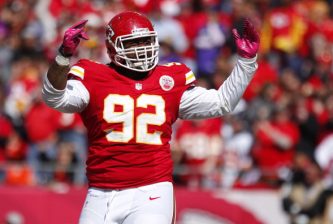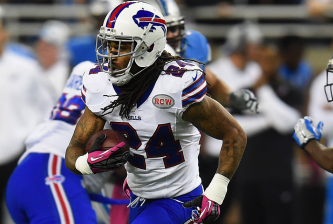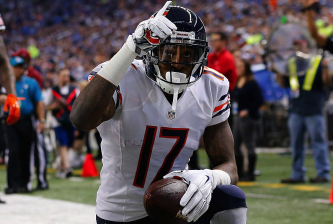Eventually the football-consuming public will develop patience when dollar figures go bouncing across various screens during the offseason (or preseason, or any time really). Eventually there will be deep breathing, and serenity now before a wide-sweeping overreaction.
Or probably not. Earlier this afternoon when word of Andy Dalton’s contract extension first surfaced it was initially valued at $115 million over six years, an average of $19.1 million annually. There was outrage and laughter, and pity towards those poor Cincinnati Bengals for investing that heavily in a quarterback whose talent is somewhere in the vast space between average and pretty OK.
But there should have been patience.
The importance of letting our hot takes simmer just a little, and waiting for quarterback contract details was clear after Colin Kaepernick signed his $126.97 million contract that isn’t at all a $126.97 million contract. Through a creative, incentive-based structure that will now likely be the blueprint for all young quarterbacks, the 49ers gave Kaepernick only $13.073 million in truly guaranteed money.
We saw a similar cycle with Dalton. After the initial angst and confusion, it was revealed that he was given a mere $17 million in guaranteed money. He’ll earn another $4 million through a roster bonus on the third day of the league year next March, according to ProFootballTalk, and he has a $3 million base salary in 2015.
Dalton not being on the Bengals roster a year from now is highly unlikely. So let’s be generous there, and do the math with the figures above to give him $25 million in guaranteed money, including his 2014 base salary.
Beyond that, it’s a year-to-year deal. And it gets better, because since he was already under contract for a tick above $1 million in 2014, over seven seasons the actual value of his total money (most of which he may never, ever earn) is $97.09 million.
Some more math then: that’s an average of only $13.87 million annually in base salary. Which makes it a team friendly deal with a highly manageable commitment, and it seems about right for an Andy Dalton.
Dalton’s post-season failures are well documented, and well ridiculed. Over three playoff appearances Dalton has completed only 56.9 percent of his passes, with six interceptions and only one touchdown pass. He’s also averaged a meager 5.84 yards per attempt over those games, a face plant completed by a passer rating of 56.2.
He’s been putrid in the playoffs, and he’s generally been a weak-armed, average quarterback who’s often bailed out by A.J. Green’s spiderman catching ways. But the flaw in any quarterback analysis and exclamation of “HE’S NOT WORTH THAT!” lies in a simple question: if not him, then who?
There’s value in average, and sticking with what you know. That’s especially true at the quarterback position, one that only about 20 people on this Earth can play effectively, and even fewer at a high level. If the Bengals didn’t re-sign Dalton and make at least a short-term commitment, the alternative is A.J. McCarron, an unknown commodity who may not succeed at the next level. Or there’s the even more uncertain option of a quarterback to be named later who hasn’t been drafted yet.
Today the Cincinnati Bengals made a minimal commitment to buy themselves security at the most important position on the football field, all while hoping a 26-year-old quarterback who’s been just fine during the regular season can still develop. That’s a worthy investment.




